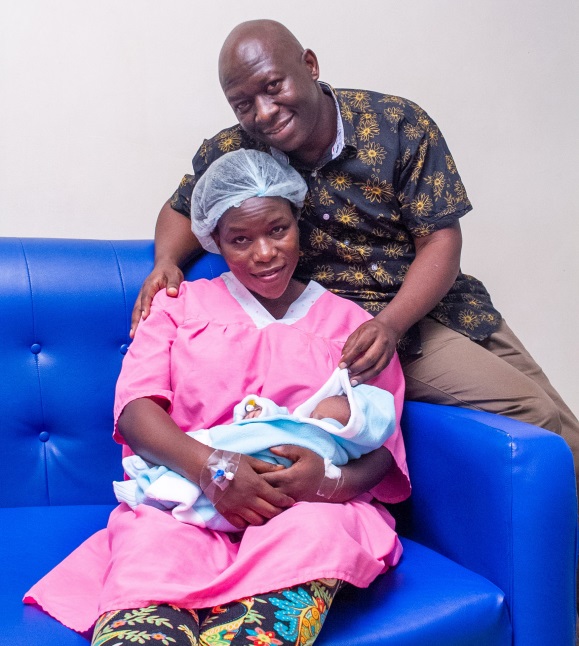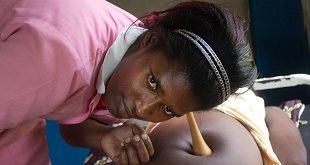
A woman’s woes give birth to a support network
Kampala, Uganda | PATRICIA AKANKWATSA | For many couples, the inability to bear children is a tragedy. The combination of personal, interpersonal, social, and religious expectations brings a sense of failure, loss, and exclusion to those who are infertile. Relationships between couples can become very strained when children are not forthcoming. One partner may seek to blame the other for being defective or unwilling.
Infertility is a disease of the reproductive system defined by the failure to achieve a clinical pregnancy after 12 months or more of regular unprotected sexual intercourse. It is a reproductive disease that affects both men and women.
Jackie Deweyi Namataka says she realised she had a problem after four years of marriage.
“In the early years, we just enjoyed our marriage. We were not in a rush to have kids. But four years down the road, I realised I had a problem and went for a check-up,” she says.
After the check-up, she was told that one of the fallopian tubes was blocked and had Polycystic ovary syndrome (PCOS). PCOS is a condition that affects a woman’s hormone levels. She was advised to do laparoscopy which is a surgery that checks for problems in the abdomen or a woman’s reproductive system.
When she did laparoscopy, this time she found both of her fallopian tubes were blocked and she started on treatment to unblock her tubes and balance her hormones.
She said the biggest challenge with this is she did not have information about infertility and so she sought treatment wherever she could because she was so desperate to get a child.
“I visited many hospitals, saw many doctors but every time I was diagnosed, I would be given tablets that didn’t help. I even tried herbs,” she says.
Deweyi says all these were trial and error because she did not know exactly what she was doing as she was ignorant about all reproductive system diseases and the doctors were not straightforward.
“Infertility has not had a face in Uganda. Every time I would check online, I would see foreign things. It was so frustrating,” she says.
Before the baby initiative
Deweyi founded an Initiative called Before the Baby in 2020 to give face and voice to the unspoken challenge of infertility in Uganda.
She also has a meeting space in her mother’s compound which offers a non-judgmental shoulder to cry on, a network of people who understand, comfort and advises each other.
It also serves as the go-to place for couples on the verge of breaking up because of infertility and people just looking for someone to walk the journey with as they try to conceive or go through life normally.
Dr Kafuuma says that availability, access, and quality of interventions to address infertility remain a challenge in most countries.
“Diagnosis and treatment of infertility are often not prioritised in national population and development policies and reproductive health strategies and are rarely covered through public health financing,” she says.
 Stigma
Stigma
Infertility has significant negative social impacts on the lives of infertile couples and particularly women, who frequently experience violence, divorce, social stigma, emotional stress, depression, anxiety and low self-esteem.
Childless women are frequently stigmatised, isolated, disinherited and neglected by the entire family and the local community.
Society’s expectation, which come from family and friends, that married couples needed to have children, elicite feelings of stigma
Addressing infertility can also mitigate gender inequality. Although both women and men can experience infertility, women in a relationship with a man are often perceived to suffer from infertility, regardless of whether they are infertile or not.
Men can also be affected by infertility by being the partner of a woman who is infertile.
“It was a hard time for both me and my husband. Every time we argued, I would feel like it is about the baby,” says Deweyi.
Deweyi says living with infertility is emotionally difficult.
“The disappointment of not becoming pregnant after trying each month can be hard on relationships. It can also be hard on your emotional health. It’s difficult to see friends, family, and even strangers have babies when you cannot,”
“There are some friends of ours who couldn’t even let me carry their babies saying that I am cursed,” she says.
Causes
Dr Robert Busingye a Senior Consultant in Obstetrics and Gynaecology at Neogenesis fertility centre says that there are many causes of infertility in women which could include problems with the uterus.
“This includes polyps, fibroids, septum or adhesions inside the cavity of the uterus. Polyps and fibroids can form on their own at any time, whereas other abnormalities (like a septum) are present at birth. Adhesions can form after a surgery like,” he says.
He also says that a woman can become infertile if she has problems with the fallopian tubes.
Dr. Kafuuma adds that also when a woman has problems with ovulation, she can become infertile.
“There are many reasons why a woman may not ovulate (release an egg) regularly. Hormonal imbalances, a past eating disorder, substance abuse, thyroid conditions, severe stress and tumours are all examples of things that can affect ovulation,” he says.
He also says that a woman may have problems with egg number and quality, thus causing infertility.
“Women are born with all the eggs they will ever have, and this supply can “run out” early before menopause. In addition, some eggs will have the wrong number of chromosomes and cannot fertilize or grow into a healthy fetus,” he says.
Treatment
Deweyi says that treatment was the hardest part because she didn’t know what she was dealing with exactly.
“I underwent various treatments as I said before, it was hard. Everywhere I went, I was told a different thing. I spent a lot of time and mostly money on unsuccessful treatments,” she says.
She says that at some point she got pregnant and lost the baby.
“I almost gave up. It was so painful. After going through all those treatments, the money and I lost the baby,” she says.
Dr Joseph Kafuuma, a fertility specialist at the Women’s Hospital International and Fertility Centre, says that infertility treatment depends on the cause, your age, how long you have been infertile and personal preferences. Because infertility is a complex disorder, treatment involves significant financial, physical, psychological and time commitments.
“Treatments can either attempt to restore fertility through medication or surgery or help you get pregnant with sophisticated techniques,” he says.
Many patients will require artificial insemination (injecting washed sperm into the uterus after ovulation) or in vitro fertilisation (fertilizing eggs with sperm in the lab to make embryos, then transferring the embryo into the uterus).
Adoption and gestational surrogacy may also be options for women with infertility who wish to start a family. Jackie Deweyi Namataka has just had her first baby two months ago in her 10 years of marriage.
****
 The Independent Uganda: You get the Truth we Pay the Price
The Independent Uganda: You get the Truth we Pay the Price



